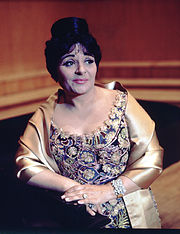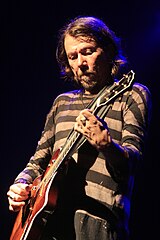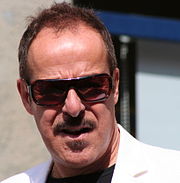Design
Design
Personality
Chart Properties
Your Cross represents the specific theme of your life. This cross embodies your unique potential & the lessons you're here to learn, providing a roadmap to fulfilling your life purpose.
We use the UTC birth time and date to do the calculations required to generate your Human Design chart.
Buy Tokens
Pay as you use, no expiry and no subscription required.Prompt Ideas
Get inspired with some epic prompt ideas.Brutus Molkenbuhr's Biography
German historical figure who played an important role on the soldier’s council in the run-up to and during the November Revolution (1918-1919) as an advocate of a Soviet republic. (The November Revolution was a civil conflict in the German Empire at the end of the First World War that resulted in the replacement of the German federal constitutional monarchy with a democratic parliamentary republic that later became known as the Weimar Republic). At times Molkenbuhr served as the second chairman of the executive council of the Workers and Soldiers Councils of Greater Berlin.
Brutus Molkenbuhr was the third son of Hermann Molkenbuhr, an SPD politician, member of the Reichstag and a formative personality in the history of the German labour movement. Brutus Molkenbuhr also joined the SPD in 1899. Since 1914 he served in the First World War, becoming a sergeant in 1916.
He was elected on 10 November 1918 to the soldier’s council in the executive council of workers and soldiers councils of Greater Berlin. After the departure of Hans-Georg von Beerfeldes, he rose two days later alongside Richard Müller to become second chairman of the Executive Council. On 8 January 1919, Molkenbuhr chaired and subsequently served on the Military Committee of the Executing Council.
As part of the Military Committee, Molkenbuhr argued in April 1919 that militarism in particular had to be eliminated by transforming the army into a popular militia. Since technical competence would also be required in the new army, one should not without exception dismiss all officers. Military educational institutions, which should not become drills, would still be needed. The new army should also keep out of politics. His proposal met with considerable opposition in the committee. In addition, Molkenbuhr was accused of vouching for a 16,000-strong Republican Army to provide security. It was seen as the fault of Molkenbuhr that Berlin troops had not been called in to suppress the unrest during the November Revolution.
In December 1918, Kurt Tucholsky (under the pseudonym Theobald Tiger) immortalized Brutus Molkenbuhr in his poem “Bruch,” which addressed the blowing up of Siegesallee (a broad boulevard in Berlin) as proposed by Hans Paasche of the soldiers’ council.
In the Weimar Republic Molkenbuhr was still active in trade union work and the SPD and was therefore persecuted during the Nazi era. After the Second World War, he was chairman of the Association of Political Refugees in the district of Schöneberg. He worked at the Bank for Economics and Labor and was also an employee representative on the Supervisory Board. Since 1954 he was district councillor for the SPD in the district of Schöneberg. He died in Berlin on 1 September 1959, aged 78.
Link to Wikipedia biography (German)
Your Cross represents the specific theme of your life. This cross embodies your unique potential & the lessons you're here to learn, providing a roadmap to fulfilling your life purpose.
We use the UTC birth time and date to do the calculations required to generate your Human Design chart.
Prompt Ideas
Get inspired with some epic prompt ideas.

Victoria de los Ángeles
1/4 Emotional - Solar Plexus ProjectorCarole Vareille
5/1 Emotional - Solar Plexus Manifesting GeneratorMargarete Haagen
2/4 Emotional - Solar Plexus Manifesting Generator

Lenine
6/3 Sacral Manifesting GeneratorWayne Slater
4/6 Sacral Manifesting Generator





